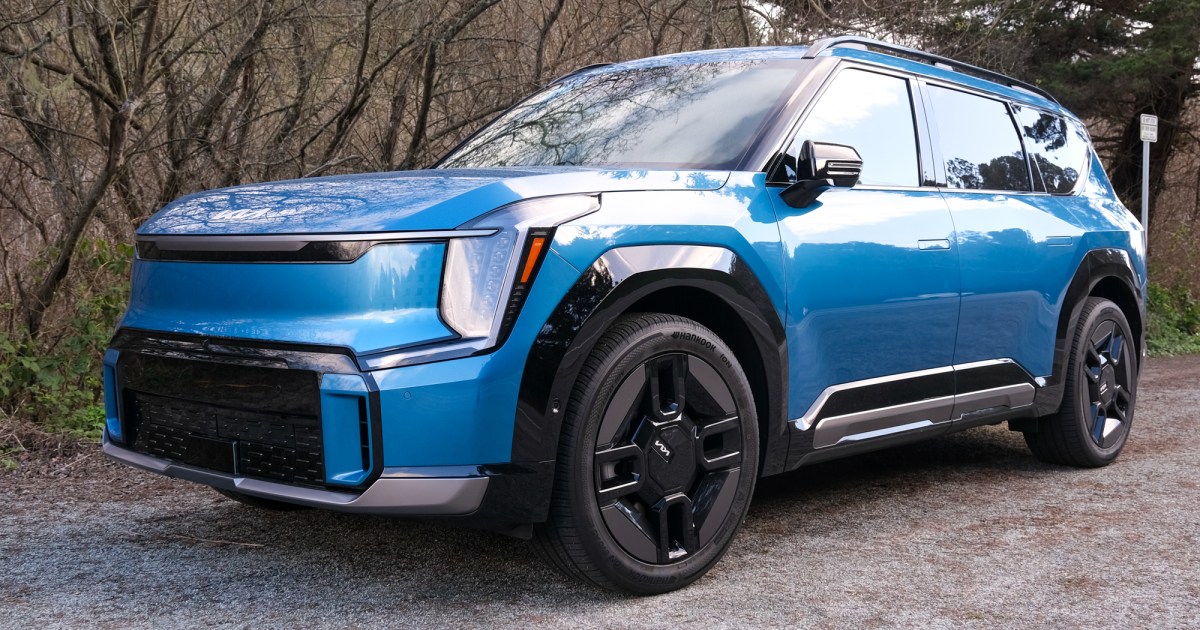If you’ve been planning on buying an EV, now might be the time
Well, the days of being able to count on a $7,500 rebate on EV purchases may be coming to a close. The federal EV tax credit has long been a way for many customers to justify the purchase of an electric vehicle over a traditional gas-powered one, especially considering the fact that EVs are typically more expensive upfront (though they cost less to maintain and power over time). Many of the most popular EV models have qualified for the credit over the years, including the Tesla Model 3 and Model Y, Kia EV6, Hyundai Ioniq 5, and so on.
With the upcoming change in administration, those days could soon be over. According to a report from Reuters, President-elect Donald Trump’s transition team is reportedly planning to kill the EV tax credit — a move that would likely dissuade many potential buyers from opting for an EV.
The move will have a pretty significant impact on the automotive industry in general. EV manufacturers have been banking on the tax credit as a way to lower the costs of their cars for customers, and many manufacturers have built plants in the U.S. in an effort to ensure that their vehicles qualify for the credit.
The news isn’t great for those who were planning on buying an EV in the next few years. If you are about ready to pull the trigger, you may want to start thinking more seriously about it as we head closer to the beginning of Trump’s term in January.
Unknowns
Of course, to be clear, Trump’s team hasn’t actually announced that it’s planning on getting rid of the credit just yet, with the Reuters report citing two unnamed sources with direct knowledge of the matter. It’s entirely possible that the decision could be reversed, especially as more information comes to light about how it will impact American automotive manufacturers and jobs for American workers in newly built plants. Even if the Trump team does announce that it will be killing the credit, it’s entirely possible that they could instead phase it out over the course of a few months or years instead of ending it with immediate effect.
All that is to say that we may end up finding out that the new administration won’t kill the tax credit at all, whether through a decision or by having other priorities first. In other words, you may find yourself buying an EV with the fear of the tax credit going away, only to find that it remains in place for the next few years.
The best models that currently qualify
If you do decide to buy an EV now in order to take advantage of the credit before it goes away, there are a few models that you should consider.

Those in the market for a crossover-sized vehicle are spoiled for options. There’s the highly popular Tesla Model Y, alongside the Hyundai Ioniq 5, Ford Mustang Mach-E, and the Kia EV6, all of which are considered to be among the best in their class.
If you’re instead looking for an SUV-sized vehicle, then your options are a little more limited, but there are still some great vehicles out there. Perhaps the best vehicle that qualifies for the EV tax credit and is SUV-sized is the Rivian R1S (though keep in mind the price limitations of the credit, outlined below). For a slightly more affordable option, it’s worth considering the Kia EV9, which is also an excellent SUV.
Perhaps you’re instead looking for a truck? In that case, the Ford F-150 Lightning is an excellent option, as is the Rivian R1T.
How to take advantage of the federal EV tax credit
There are some guidelines for the federal EV tax credit that you’ll need to keep in mind if you want to take full advantage of it. The credit depends on where EVs are made, and only vehicles manufactured in North America qualify. Not only that, but these vehicles must have an MSRP under $80,000 for an SUV or under $55,000 for a sedan or hatchback. You may still be able to get the credit on your taxes if you lease a vehicle instead of buying one. Additionally, plug-in hybrid vehicles may qualify for the credit, but traditional hybrid cars do not.

There are also income limitations related to the tax credit. For those buying a new EV, the income limit for a single person or married couple filing separately is $150,000. For the head of household, the limit is $225,000, while for those married and filing jointly, it’s $300,000. For those buying a used EV, the income limit is half of those numbers.



